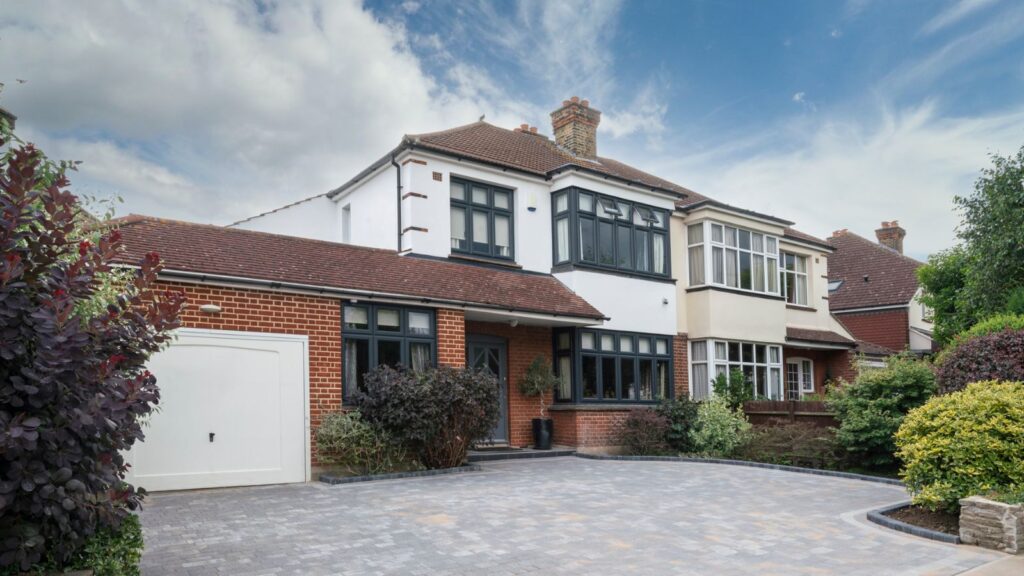A warm, crackling fire is a wonderful way to keep cosy during the UK’s colder months. But for those who enjoy the charm and heat of a fireplace or wood-burning stove, chimney maintenance is an essential part of home care.
Failing to clean your chimney regularly can lead to a range of issues, from poor efficiency to dangerous fires.
So, how often should you clean your chimney, and what are the key things to consider?
Why Regular Chimney Cleaning is Important
Over time, chimneys accumulate soot, creosote, and other debris that can hinder proper ventilation and pose serious fire hazards.
Creosote, in particular, is a by-product of burning wood or coal, and it’s highly flammable. A build-up of creosote can ignite and lead to a chimney fire, which could quickly spread to other parts of the house.
Regular cleaning not only keeps your fireplace operating efficiently but also protects your household from potential risks like carbon monoxide poisoning, which can occur when ventilation is blocked.
How Often Should You Clean Your Chimney?
The frequency of chimney cleaning depends on how often you use your fireplace or stove and what type of fuel you burn.
For Wood and Coal Fires
If you use your fireplace or wood burner regularly, particularly with wood or coal, it’s recommended to clean your chimney at least once a year. In some cases, especially if the fire is used daily throughout the winter, twice-yearly cleaning may be necessary. This ensures that soot and creosote are cleared out, keeping the chimney safe and functioning efficiently.
For Gas Fires
While gas fireplaces don’t produce soot or creosote, they still require periodic checks to ensure that the ventilation is clear and functioning properly. Blockages can still occur, especially if birds or other debris have entered the flue.
For gas fireplaces, an annual inspection by a certified professional is recommended, even if a full clean isn’t always necessary.
After a Heavy Season of Use
If you’ve had a particularly active winter, burning wood every day, it’s wise to schedule a chimney cleaning before the next cold season begins. Even if you’ve had an annual clean, a busy fireplace can accumulate creosote quickly, and staying ahead of this build-up ensures safe use year after year.
Signs Your Chimney Needs Cleaning
Aside from regular maintenance, there are some tell-tale signs that your chimney might need immediate attention:
- Smoke backing up into the room: This can indicate a blockage in the chimney, restricting airflow.
- A strong, unpleasant odour: The smell of creosote or soot can signal a heavy build-up.
- Soot falling into the fireplace: If you notice soot deposits inside the fireplace, it’s a clear sign that the chimney is clogged.
- Visible creosote build-up: If you can see a shiny black substance inside the flue, that’s creosote, and it needs to be cleaned as soon as possible.
Professional vs DIY Cleaning
While some people attempt to clean their chimneys themselves, it’s generally safer and more effective to hire a professional chimney sweep.
They have the tools and expertise to ensure that the chimney is thoroughly cleaned and free of any hazards. In the UK, it’s important to hire a HETAS or NACS registered chimney sweep for the job, as these professionals are certified to clean and inspect chimneys to a high standard.
For those who prefer the DIY approach, it’s possible to purchase chimney brushes and rods, but this should only be done if you’re confident in your ability to reach all parts of the chimney and identify potential issues.
When is the Best Time to Clean a Chimney?
It’s generally best to clean your chimney in the late summer or early autumn, before the colder months set in.
This way, you’ll be ready to use your fireplace safely once the weather turns. If you wait until the peak winter season, it may be more difficult to book a professional sweep as this is the busiest time for chimney cleaning services.







